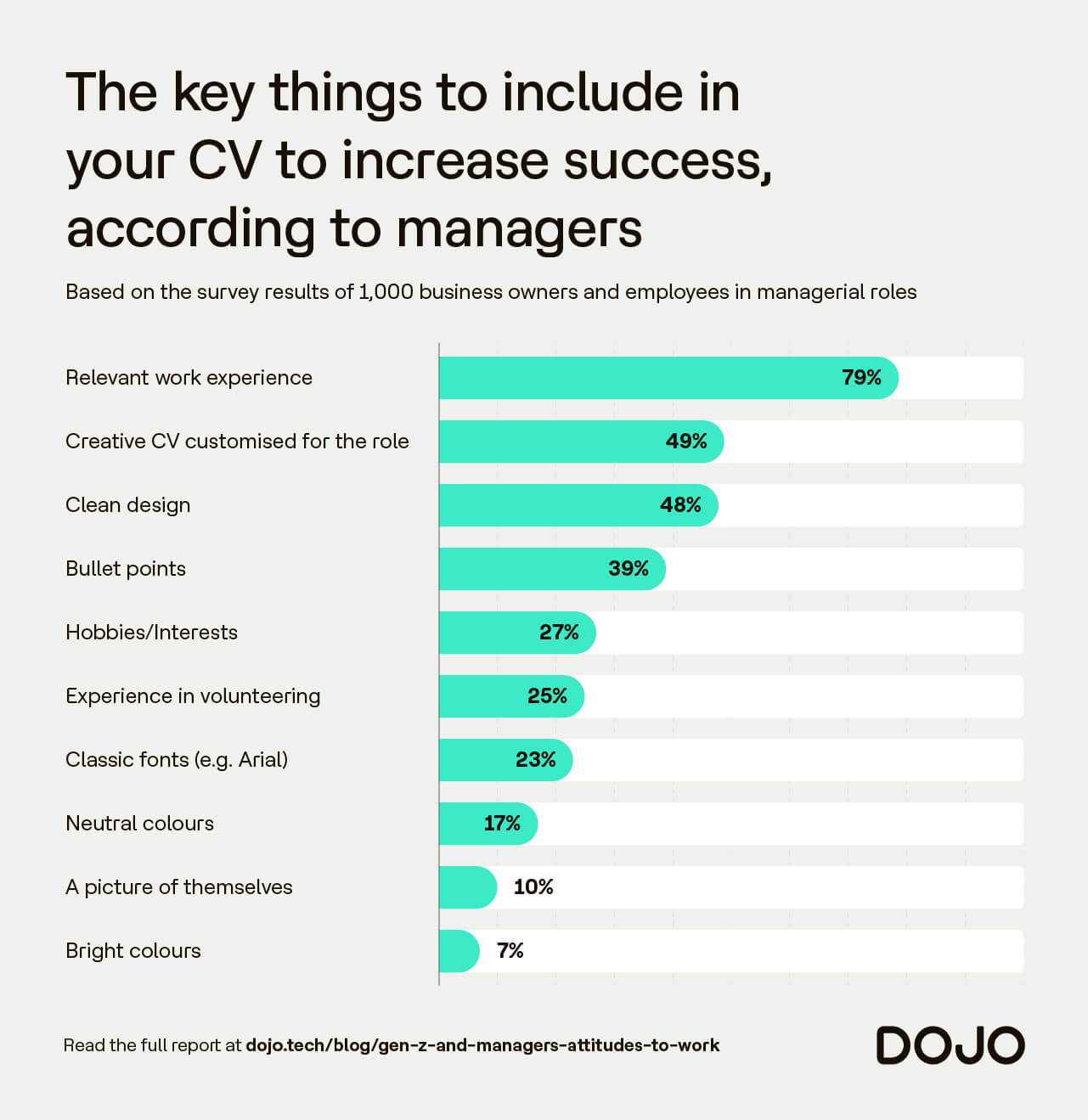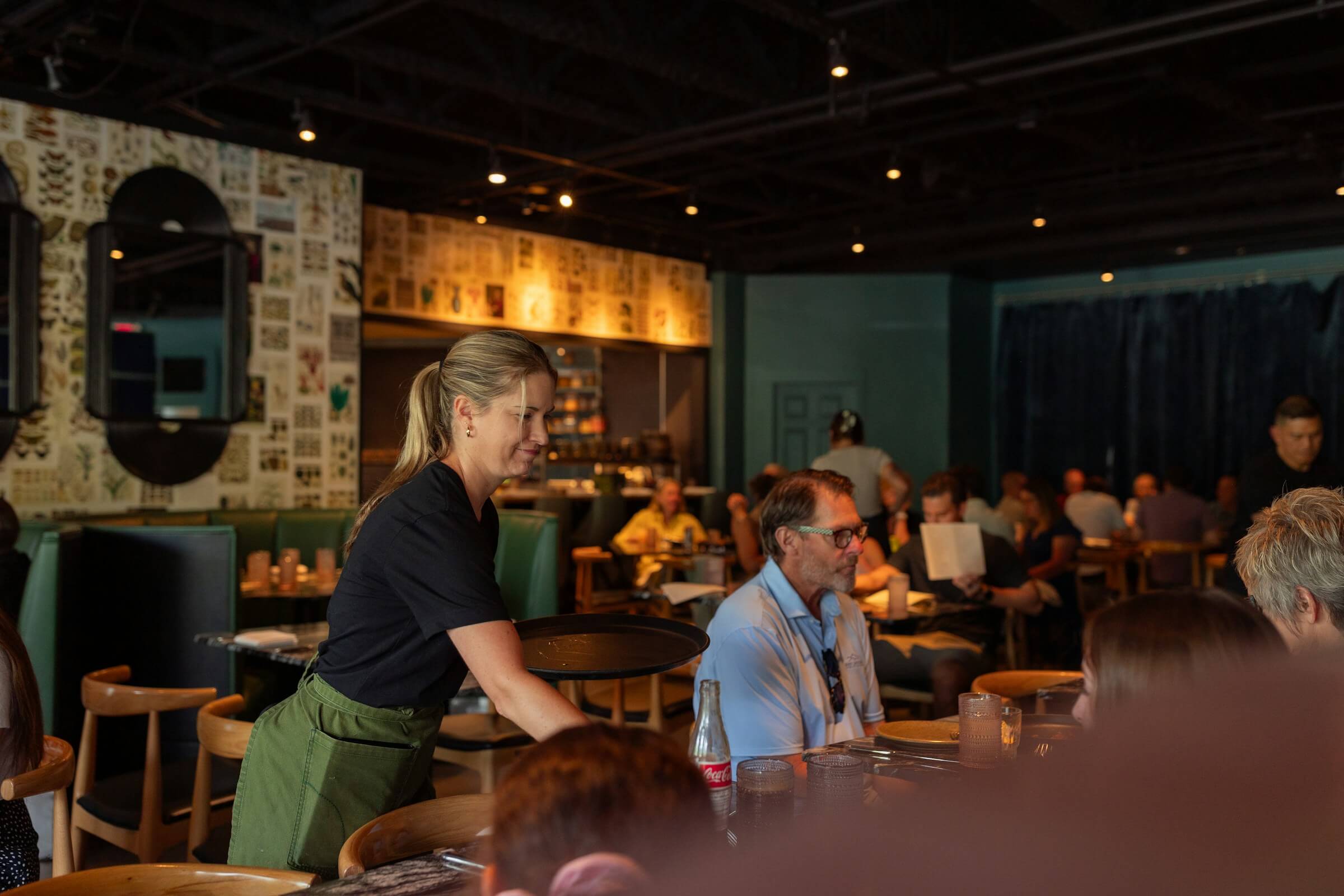An estimated 1.4 million businesses have employees in the UK [1], each faced with managing different personalities, expectations and opinions. However, our previous study found that 21% of founders struggled with staff retention this year, which has significant implications for businesses - particularly small to medium-sized businesses - as they navigate the evolving expectations of today's workforce. Enterprise businesses also have a large responsibility and challenge in maintaining cohesive employee management styles, often facing sizable workforces with multiple departments and varying job roles.
As Gen Z - those born between 1997 and 2012 - enters the workforce in increasing numbers, their influence is reshaping norms and expectations. By 2025, Gen Z is expected to make up a quarter of the global workforce, bringing distinct views which value work-life balance and personal well-being. The UK Government aims to respond to this shift in priorities with initiatives like Labour’s "Make Work Pay", which included the pledge to introduce a 'right to disconnect' allowing workers to separate their work and home lives, as well as banning zero-hour contracts.
To understand more about how different generations approach management and work, we commissioned OnePoll to survey 1,000 Gen Z workers and 1,000 business owners and employees in managerial roles. The pool of respondents worked in varied industries, providing insight into different sectors, including hospitality, creative arts and design, and law.
The research analysed the dynamic between ‘bosses’ (business owners and employees in managerial roles) and members of the Gen Z workforce, including how many business owners and those in managerial roles contact employees outside of work and how that makes employees feel.
We also spoke with HR experts to gain insights that better equip business owners to manage their teams effectively. Their expert perspective aims to provide both employees and their managers with the tools that they need to feel supported in the workplace.
Workplace statistics and key findings
- 72% of bosses think it's ‘okay’ to contact employees outside of work
- 86% of Gen Zers have been contacted outside of working hours
- Nearly 1 in 5 hospitality bosses contact employees outside of working hours
- 17% of Gen Z feel that their ‘managers do not care’ if they are overworked
- 1 in 5 bosses say vaping and smoking could be grounds for not passing probation
- 40% of Gen Zers say their boss is professional but only 11% of bosses think the same about them
- 91% of Gen Z would set up a humorous out-of-office email, while 21% of bosses would find it extremely unprofessional
- 75% of Gen Z share sensitive work information with friends
- Almost half of bosses want a creative CV, customised for the role, from applicants
Right to disconnect? 72% of bosses admit to contacting employees out of hours

We surveyed bosses across multiple industries to understand their views. From those surveyed, 72% of respondents agreed that it's okay to contact their staff outside of working hours. We also surveyed the Gen Z workforce to see how often they have been contacted outside of work hours and how this makes them feel.
Boomers and Millennial bosses are most likely to contact employees outside of working hours
Out of all the generations classed as working age, Boomer bosses (76%) are most likely to contact employees outside of work. This was followed by Millennials (74%) and Generation X bosses (67%).
86% of Gen Zers have been contacted outside of working hours

Interestingly, the Gen Z survey respondents revealed that, on average, they’ve been contacted out of hours seven times a week. This means that Gen Z could have been contacted over an estimated 322 times in a year, in their personal time by their employer. [2]
How do Gen Z feel about being contacted by work in their personal time?
According to the survey:
- 22% of Gen Z say they're ‘used to’ being contacted outside of work
- 12% say it gives them anxiety
- 10% say they can't switch off at home
- 6% of Gen Z reveal being contacted outside of work makes them want to quit their job.
The industries that most frequently reported contacting employees outside of working hours
| Rank | Industry | Survey response: Yes - ‘always’ | Survey response: ‘Sometimes when urgent’ |
|---|---|---|---|
| 1 | Marketing, PR and advertising | 33% | 56% |
| 2 | Law enforcement and security | 33% | 33% |
| 3 | Energy and utilities | 24% | 48% |
| 4 | Information technology | 17% | 68% |
| 5 | Hospitality and events management | 16% | 65% |
Among bosses surveyed, those at marketing agencies were most likely to consider it acceptable to contact employees outside of work hours
Out of all industries surveyed, it was bosses at marketing agencies who were the most likely to believe that it is ‘always acceptable’ to contact employees outside of work. Only 11% of marketing bosses said it wasn't acceptable to contact employees outside of working hours.
Interestingly, for Gen Zers who have a job in marketing, the most common response in our survey was that they are used to being contacted outside of work (33%), with a further 25% stating that they expected to be contacted outside of work as their job requires it.
Nearly 1 in 5 hospitality bosses surveyed contact employees outside of working hours
16% of restaurant industry bosses surveyed believe it's ‘always acceptable’ to contact their employees outside of work hours, with over half (65%) stating it's ‘acceptable when urgent’.
Gen Z employees in hospitality revealed being contacted outside of work makes them struggle to switch off (20%), gives them anxiety (14%) and 10% say it makes them want to quit their jobs. About 20% said they're used to it and only 12% shared that they expect it as working in hospitality requires them to.
Gen Z reveals the most challenging things about their boss

| Surveyed trait | Overall % of Gen Z | The industry which agreed the most | % within industry |
|---|---|---|---|
| They do not care if I’m overworked | 17% | Creative arts and design | 45% |
| They ask me questions that they should know the answer to | 15% | Science and pharmaceuticals | 50% |
| They play favourites | 15% | Performing arts | 33% |
| They lack communication skills | 14% | Environment and agriculture | 33% |
| They micromanage me | 12% | Information research and analysis | 43% |
| They are condescending | 12% | Leisure, sport and tourism | 33% |
| They don’t respect working hours | 12% | Property and construction | 27% |
| They take credit for my work | 12% | Environment and agriculture | 33% |
| They gossip | 12% | Performing arts | 33% |
| They are inappropriate | 11% | Leisure, sport and tourism | 33% |
Managers playing favourites? This is one of the top three most challenging behaviours for nearly 1 in 5 Gen Zers
While most of these behaviours will be subconscious, the way that managers make their staff feel is very impactful, and being aware of any space for improvement is important.
Gen Zers revealed that one of the behavioural traits they find most challenging in their managers is when they play favourites. The top most challenging trait is ‘not caring if they’re overworked’ (17%) followed by ‘asking questions they should know the answer to’ (15%).
Hospitality employees feel that their managers do not care if they are overworked, here is how you can fix that
In the hospitality industry, the most challenging behavioural trait was ‘laziness’ in managers, an opinion shared by a quarter (25%) of surveyed Gen Z employees in the sector. This was followed by managers playing favourites (23%) and gossiping (23%). It is important for staff to feel valued at work to ensure that demotivation doesn't creep in. For tips on helping morale, our guide on motivating staff for small businesses can help.
21% of hospitality staff surveyed also felt that their managers “not caring if they are overworked” was in their top five grievances. To avoid staff feeling this way, proper staff scheduling is crucial, and while not always possible, planning ahead is a safe bet to ensure enough employees are available for work, especially during busy periods.
Bosses reveal top reasons employees wouldn’t pass their probation

Over 1 in 5 bosses wouldn’t pass an employee probation if they were on their phone at work
Although statistics show that over three-quarters of employees use their phone during work hours, over 1 in 5 bosses cited using a phone for personal reasons during work hours as a reason to fail an employee's probation.
Boomer bosses are most likely to fail an employee's probation due to phone use, with 42% aged 65 and over agreeing.
Boomers and Gen X bosses would fire someone for having too many sick days
Over half of Boomers (51%) would not pass someone's probation for calling in sick, whereas Gen Z and Millennial bosses would be more lenient with only 24% and 46% answering they would, respectively.
Smoking and vaping named in bosses top 20 reasons to not allow an employee to pass probation
The bosses also indicated that vaping would be in their top 20 reasons for not allowing an employee to pass probation, placing 18th with 10% in agreement with its significance. Similarly, smoking ranked as the 17th behaviour that could lead to dismissal, cited by 12% of bosses.
Do you take vape or smoke breaks? One in five bosses reveal you could be let go for it

For the 5.6 million adults in Britain who vape, they could be at risk of not passing their probation. The survey revealed that 1 in 10 bosses wouldn’t pass someone's probation if they vaped at work. Furthermore, nearly 20% of bosses admitted that smoking and vaping breaks are some of the most frustrating behaviours of their employees.
Millennials and Gen X were the most likely to not pass someone's probation whereas Gen Z bosses were more lenient with vaping - only 5% revealed they’d see it as grounds for dismissal. The same goes for smoking, 12% of managers across all generations wouldn’t pass an employee's probation if they were seen to be smoking while at work.
Can you vape indoors at work?

As a business owner, government guidance advises you to decide whether vaping is allowed in your workplace but smoking cigarettes inside the office is illegal under the smoking ban. As a business owner or manager, it’s advised that you decide, clarify and communicate your business’s stance on vaping when hiring and training staff to ensure they’re clear on the rules.
James Lloyd-Townshend, Chairman and CEO at Tenth Revolution Group, a company specialising in recruitment services focused on technology markets, comments on vaping in the office,
"Realistically, vaping in the office is a simple way to leave a negative impression that can be avoided, especially if you’re new. Even if people aren’t offended by it, it can be viewed as a distraction or a sign that you’re not fully in tune with the office environment. While you want to stand out during your probationary period, you need to do it for the right reasons.
If there aren’t any outright rules on vaping, look to see what others are doing and if you’re still unsure—ask. During your probation, it’s important to fully understand the company’s policies and follow them closely. Respecting workplace boundaries, including things like vaping, shows that you’re considerate of the office culture and serious about fitting in.”
Top tips from a HR expert on how to pass probation
James Lloyd-Townshend, Chairman and CEO of Tenth Revolution Group advises employees on how to succeed during their probation period:
- Understand expectations: From day one, make sure you know what’s expected of you—both in terms of your role and how your success will be measured. If anything is unclear, don’t hesitate to ask. Probation is the perfect time to seek clarity.
- Fit with the culture: It’s not just about doing the job well; cultural fit is key. Pay attention to how things work around you—whether its communication styles or how the team operates—and adapt to it.
- Be proactive: Don’t just wait for tasks to be assigned—take initiative. Look for ways you can add value, show foresight, and contribute to the team’s success. This will make you stand out in a positive way.
- Seek feedback: Regularly asking for feedback shows you’re eager to improve and learn. Plus, it gives you the chance to correct any issues before they become bigger problems.
- Professionalism matters: Keep your professionalism high—whether that’s through time management, communication, or following office protocols like break times and, yes, rules around vaping.
Over a third of bosses think gen z are creative but lack professional boundaries
| Rank | Which of the following traits do you think best describe Gen Z? | % of managers who agreed |
|---|---|---|
| 1 | Tech-savvy | 48% |
| 2 | Creative | 35% |
| 3 | Struggle with professional boundaries | 24% |
| 4 | Informal | 24% |
| 5 | Reluctant to accept criticism | 23% |
| 6 | Innovative | 22% |
| 7 | Entitled | 21% |
| 8 | Inexperienced | 21% |
| 9 | Ambitious | 20% |
| 10 | Frequently distracted | 19% |
| 11 | Inconsistent | 17% |
| 12 | Risk takers | 17% |
| 13 | Unmotivated | 16% |
| 14 | Highly motivated | 16% |
| 15 | Eager to challenge the status quo | 16% |
The top most common ways bosses described Gen Z were tech savvy (48%) and creative (35%). Nearly 1 in 4 bosses think Gen Z are informal followed by that they are reluctant to accept criticism (23%).
21% of bosses think Gen Z are entitled whereas only 7% of Gen Z think the same about them
Generation X bosses are most likely to think Gen Z are entitled (24%) followed by Millennials (20%) and then Boomers (16%).
40% of Gen Zers say their boss is professional but only 11% of bosses think the same about them
When looking at professionalism in the office, just under 1 in 2 Gen Z think their boss is professional. However, the same can't be said for how bosses feel about Gen Z as only 11% agreed with the same statement.
The top 18 things employees do that frustrate their bosses
| Rank | Behavioural trait of employees | % of managers who agree |
|---|---|---|
| 1 | When they have a negative attitude | 51% |
| 2 | Spreading false information/rumours | 44% |
| 3 | Making excuses | 44% |
| 4 | Acting unprofessionally (e.g., swearing or being too casual in front of clients) | 43% |
| 5 | When they show up late | 42% |
| 6 | Not taking ownership of tasks | 42% |
| 7 | Saying they understand something when they do not | 37% |
| 8 | The amount they complain | 34% |
| 9 | Sharing classified information | 34% |
| 10 | Taking too many breaks | 31% |
| 11 | Sharing inappropriate content on social media | 31% |
| 12 | Being on their phone at work | 29% |
| 13 | Knowing they are hungover when working | 26% |
| 14 | When they leave early | 23% |
| 15 | Not being direct/not feeding back clearly | 23% |
| 16 | Taking vaping/smoking breaks | 19% |
| 17 | When they call in sick | 17% |
| 18 | When they do not have their cameras on during a virtual meeting | 15% |
44% of employees spread rumours and managers dislike it
The most frustrating bugbear reported by business owners and those who manage employees is when their employees have a negative attitude (51%), spread rumours (44%) and when they make excuses (44%).
Why you should turn your camera on, or risk frustrating your boss
There's an age-old debate about when it's acceptable to turn your camera off on virtual calls. However, 15% of managers reveal it's a top bugbear when their employees have their cameras off during meetings, whereas nearly 10% of Gen Z dislike it when their manager asks them to turn their laptop camera on.
Out-of-office messages risk verbal warnings and disciplinaries according to bosses

Employees have been switching up their out-of-office replies and including funny responses or attaching videos for why they are OOO. They’ve been writing responses like “The bad news is I'm out of office. The good news is that I’m out of office”. The trend has gone viral on TikTok with millions of views and over 20,000 posts contributing to the trend.
21% of managers find it extremely unprofessional, 27% of Gen Z disagree

| Survey response | % of managers that agree |
|---|---|
| I would find it funny | 24% |
| I would find it extremely unprofessional | 21% |
| I would find it irritating but not unprofessional | 9% |
| I would give a verbal warning | 6% |
| I would raise it with my senior manager | 4% |
| I would give a disciplinary | 3% |
However, some employees might want to reconsider setting a humorous 'out of office' message for their next holiday as over 1 in 5 managers find it extremely unprofessional. Although nearly a quarter of managers find it funny, some managers would give a verbal warning (6%) and a small percentage would even give employees a disciplinary (3%).
On the employee side, 27% of Gen Z writing OOO emails think it’s funny.
52% of gen z share their passwords with colleagues

| Which security measures do you follow? | % of Gen Z employee respondents who agree |
|---|---|
| I don’t use WhatsApp on my work laptop/computer | 29% |
| I don’t share on social media during work hours | 29% |
| I don’t use my work laptop/computer for personal activities outside of work hours | 28% |
| I don’t access or view my boss’s work calendar without permission | 26% |
| I don't share information about work with friends | 25% |
| I set meetings to private when necessary | 22% |
| I don’t use my phone during work hours apart from during lunchtime | 20% |
| I don’t download files without IT approval | 20% |
| I always use my key fob | 20% |
| I don't take work calls in public | 17% |
74% of Gen Z look at their manager’s work calendar
Only 26% answered that they don’t look at their bosses' calendars without permission, suggesting the other 74% of Gen Z love to snoop on what their boss is getting up to.
75% of Gen Z surveyed, share sensitive or private work information with friends
Of those surveyed, only 25% of Gen Z respondents admitted that they don’t share sensitive or private work information with friends outside of work.
Only 17% of Gen Z don’t take work calls in public - here’s why you shouldn't

Managers reveal key things to add to cv to increase success

| How to increase the success of CV | % of manager respondents who agree |
|---|---|
| Relevant work experience | 79% |
| Creative CV customised for the role | 49% |
| Clean design | 48% |
| Bullet points | 39% |
| Hobbies/Interests | 27% |
| Experience in volunteering | 25% |
| Classic fonts (e.g., Times New Roman and Arial) | 23% |
| Neutral colours | 17% |
| A picture of themselves | 10% |
| Bright colours | 7% |
Nearly half of bosses want a creative CV customised for the role
Aside from the relevant experience, 49% of bosses say having a creative CV can increase the chances of being put through to the next stages of an interview. This is followed by clean design (48%) and bullet points listing hobbies and interests (27%).
1 in 5 Gen Z didn’t secure a job in their field of work after graduating
| How soon after finishing your education did you secure a job in your field of study? | % of Gen Z respondents |
|---|---|
| I had a job offer prior to graduating | 22% |
| Up to one month after finishing | 12% |
| 1-2 months | 17% |
| 3-4 months | 17% |
| 5-6 months | 12% |
| 7-8 months | 5% |
| 9-10 months | 4% |
| 11-12 months | 4% |
| Over a year | 4% |
When asked if they secured a job in their field of study, 66% of Gen Z said they did, whereas, 24% said they didn’t.
17% of Gen Z waited 3 to 4 months to get a job in their field of study
The highest percentage of Gen Z (22%) had a job offer before graduating followed by 1-2 months (17%) and 3-4 months (17%).
We asked five Gen Z interns about the most difficult part of finding a job after graduation. They described the interview process as “rough,” often taking “a couple of months of going through 100 interview stages” only “to get rejected at the last stage.”
Others pointed out that many entry-level roles now require internships, with “some internships looking for a prior internship as well.” One intern added, “Spending hours filling out applications online only to not reach the next stage, and not be given feedback on what could be improved.”
How Dojo can help your business
In today's business landscape, fostering strong relationships isn't just about connecting with your employees, building lasting relationships with your customers is equally as essential. At Dojo, our reliable card machines are designed to support you in both, helping to create a smooth experience for everyone involved.
Choosing the right card machine for your business can be daunting so we’ve put together a guide to help inform you of our different options each tailored for different business needs, from our portable, mobile to countertop payment options.
Methodology
Dojo commissioned OnePoll to survey 1,000 Gen Z workers and 1,000 business owners and employees in managerial roles aged 18+ to find out the dynamics of both generations in the workplace. This included asking questions about office security, the right-to-disconnect policy and reasons to not pass an employee's probation.
[2] The figure “Gen Z could have been contacted over an estimated 322 times in a year, in their personal time by their employer.” was calculated based on 46 working weeks in a year, multiplied by seven (the number of times per week that Gen Z reported being contacted outside of working hours).



